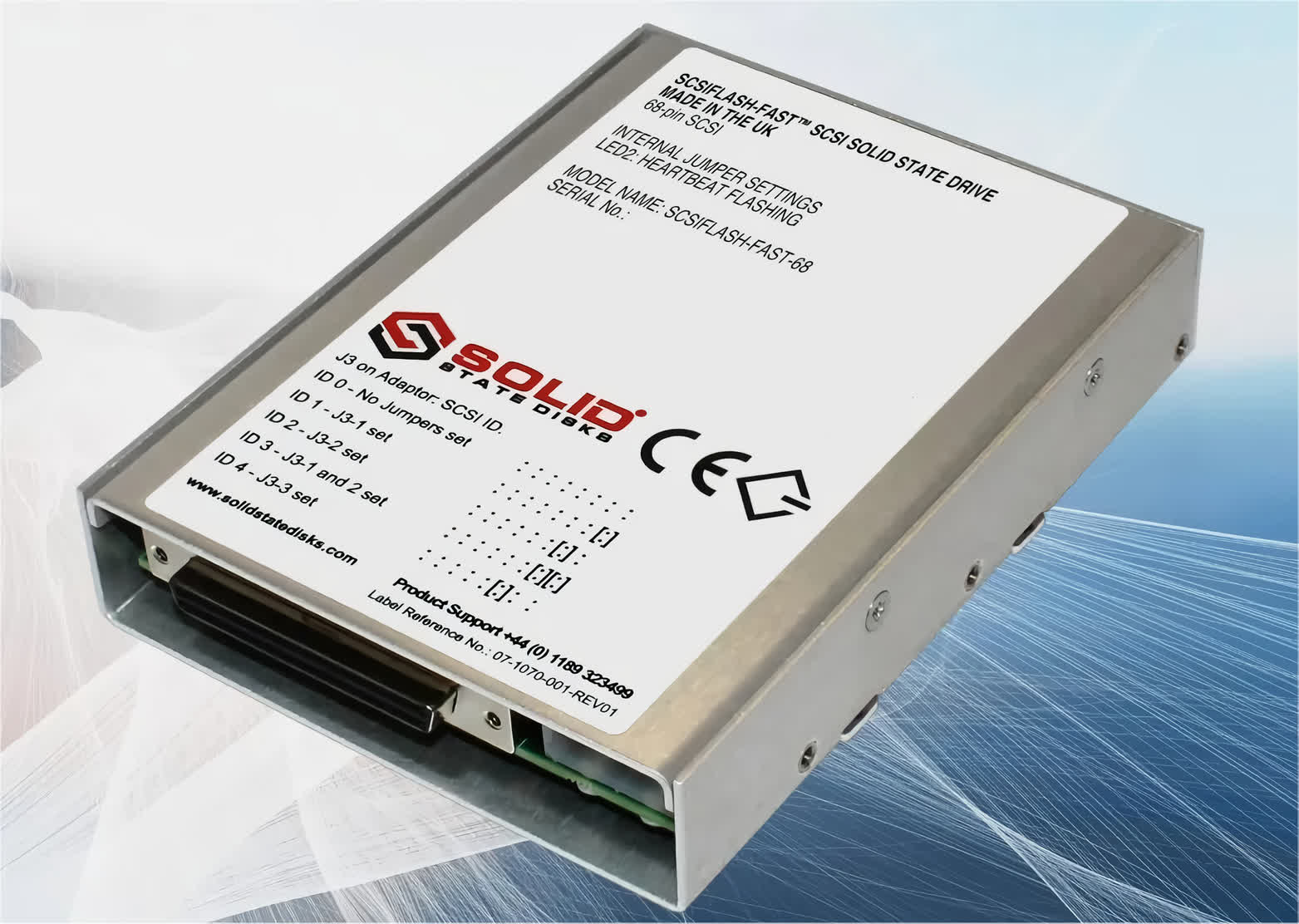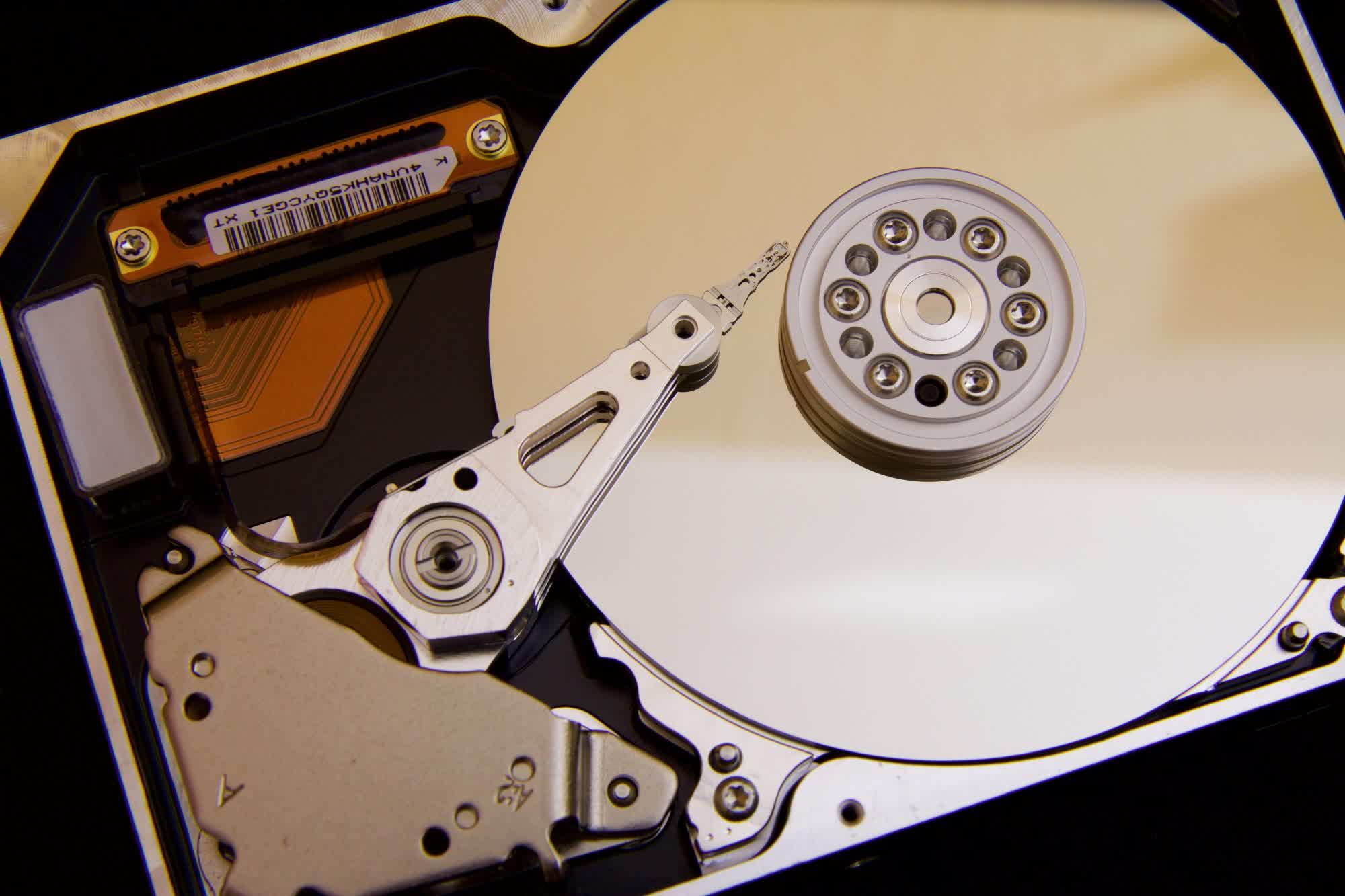In brief: Solid-state drives afford a wealth of benefits compared to mechanical drives, and now IT admis and hardware enthusiasts clinging to legacy systems have the opportunity to leverage SSD perks without having to upgrade to an entirely new platform.

A company by the name of Solid State Disks Ltd recently launched a swap-in upgrade / replacement for mechanical HDDs that use the SCSI interface. The drives are initially being made available with 68- and 80-pin connectors with capacities ranging from 2 GB to 1 TB.
SCSIFlash-Fast drives can be configured to order and dropped right into a target system without any modifications by the end user. Specifically, the SCSI version can be set to match that of the host system (SASI, SCSI-1, SCSI-2, or Ultra3) with a disk sector size set to 256, 512, 768, 1024, 2048, or 4096. Preloading data is also an option, should the customer need it.
The drive requires a 5V DC power supply, consumes just 0.8W (plus whatever power the storage media draws) and is offered in a standard 3.5-inch form factor.

James Hilken, SSDL's sales and marketing director, said there are several systems still in use today in industries like aerospace, defense, telecommunications, and manufacturing, that were designed decades ago with then state-of-the-art SCSI hard drives. These drives with their moving parts are increasingly failing, Hilken said, adding that their SCSIFlash-Fast drives are reliable replacements for virtually any SCSI drive that's more than 20 years old at this point.
SSDs offer a variety of benefits over traditional hard drives. With no moving parts, they're far quieter than their counterparts and often run cooler while consuming less power. They're also faster than mechanical drives – in this instance, SSDL says its drive is rated for write speeds of up to 80 MB/s.
Interested parties are encouraged to check out SSDL's detailed datasheets for more information. Pricing will likely be the deciding factor for most; unfortunately, I didn't see any pricing on SDSL's site.
Image credit: Pixabay
https://www.techspot.com/news/101858-drop-ssd-can-replace-outdated-scsi-drives.html